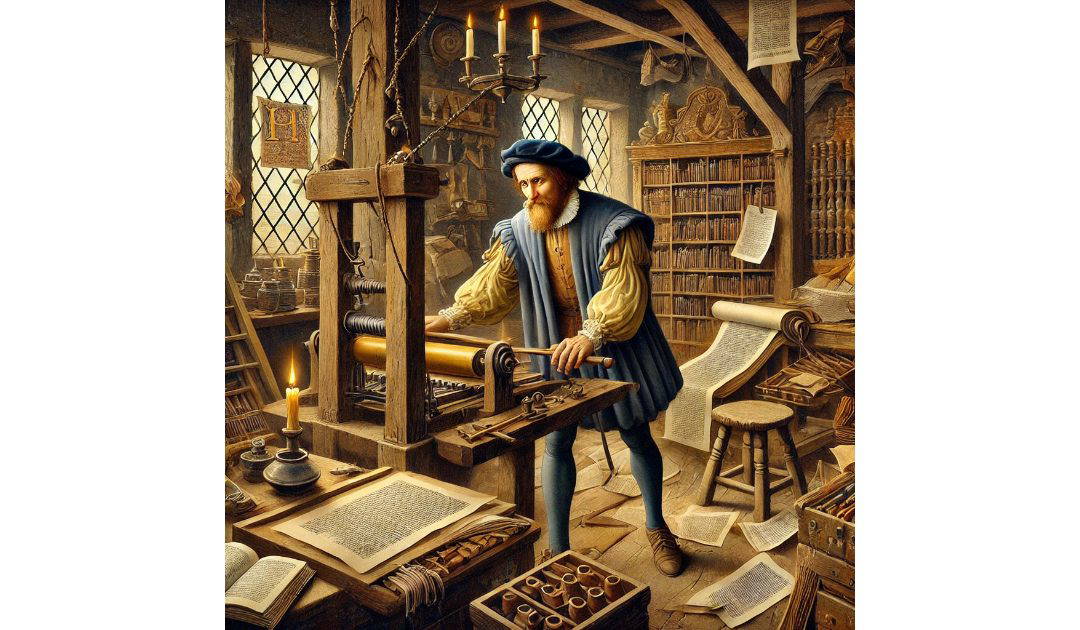I posted a few days ago about Gutenberg and the invention of the printing press. Well, on the 18th of November 1477 William Caxton printed the first English dated printed book, “Dictes & Sayengis of the Phylosophers” in London.
William Caxton (c. 1422–1491) was a pivotal figure in English history, credited with introducing the printing press to England. His work as a printer, merchant, and translator helped revolutionize the accessibility of literature and information, transforming the cultural and educational landscape of England in the late 15th century.
Born in Kent, England, Caxton moved to Bruges in the Burgundian Netherlands as a young man to work as a merchant. There, he rose to prominence within the English merchant community and developed a keen interest in literature. During this time, Caxton came into contact with the early printing presses on the continent, which had been pioneered by Johannes Gutenberg in Germany around 1440. Fascinated by the potential of this new technology, Caxton decided to learn the craft himself, seeing its potential to produce books more efficiently than manual copying.
Caxton’s first major project was a translation of Recuyell of the Historyes of Troye, a French romance that he translated into English, likely completing it in 1471. It became the first book ever printed in English, and its success encouraged him to establish a printing press. In 1476, he set up England’s first press in Westminster, near London, marking a significant milestone in English history.
Over the next fifteen years, Caxton printed around 100 works, including notable titles such as Geoffrey Chaucer’s The Canterbury Tales, Thomas Malory’s Le Morte d’Arthur, and works by John Gower. These publications made literature more accessible to the English-speaking population, which had previously relied on expensive, hand-copied manuscripts. By printing in English, Caxton helped standardise the English language and influenced the development of English prose.
In addition to his work as a printer, Caxton was also a translator, producing English versions of many works originally in Latin, French, or Dutch. His choice of titles often catered to the interests of the English nobility, but he also published texts intended to reach a wider audience, including religious works, philosophical treatises, and popular romances.
Caxton’s impact extended beyond printing. By establishing the first English printing press, he played a crucial role in spreading Renaissance ideas in England, encouraging literacy, and fostering a shared national culture. His work marked the beginning of a more literate society, laying the foundation for the English Renaissance and making him one of the most influential figures in the history of English literature.

